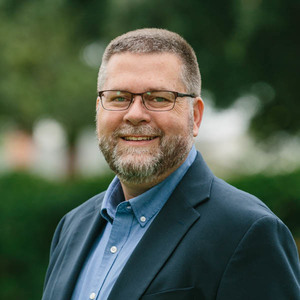This summer I had the privilege of attending Acton University. This week-long meeting is hosted by the Acton Institute, a think-tank 鈥渨hose mission is to promote a free and virtuous society characterized by individual liberty and sustained by religious principles.鈥� Common themes at Acton are religious liberty, economic liberty, and natural law. Much like C.S. Lewis鈥� Mere Christianity, Acton seeks to promote a civil society advanced on natural law reasoning. At Acton one encounters philosophers, economists, entrepreneurs, theologians, biblical scholars, ethicists, and aid workers from around the world.
One of the most engaging lectures I attended at this year鈥檚 event was by Anne Rathbone Bradley. It was entitled, 鈥淭he Economic Way of Thinking.鈥� Dr. Bradley is a well-known economist who labors to help others understand the way economic principles flow out of God鈥檚 creation of the world. She serves as the vice-president of economic initiatives at the Institute for Faith, Work, and Economics. I was fascinated by her approach and how she was able to bring economics out of the clouds and make it tangible and significant for everyday life. What鈥檚 more she was able to help us see the role economics plays in loving one another, and in fulfilling God鈥檚 intention for human society to flourish.
The core of her approach to thinking economically was distilled in three points.
- We are created to work.
- Our work is designed to support flourishing.
- Thinking economically is a necessity for human flourishing.
As Dr. Bradley unpacked these core ideas I found four economic truths that captured my attention. These four ideas are firmly rooted in economic theory, yet they are also intimately connected to how the world was created and how we interact with and serve one another鈥攅conomically. I am not sure that before this lecture, I would have ever modified 鈥渟erving鈥� or 鈥渓oving鈥� one another, with 鈥渆conomically.鈥�
These four economic truths are:
- We must ration. This flows from the idea that resources are inherently limited. So valuable resources must be rationed.
- We need to discover. Although resources must be rationed, rationing alone will not lead to economic flourishing. Instead, while rationing precious commodities, we need to go about the work of discovery, invention, and creation.
- We cannot flourish alone. Resources are limited both in terms of quantity and in terms of distribution. Not everyone will discover or create all that is needed. Thus we must trade for new inventions and share our creations with others. This exchange enables us to secure what is required to satisfy our own needs (and desires) and to help fulfill the needs (and desires) of others. We can do this with people we know, or even with complete strangers through economic exchange.
- Any successful economic order must embrace these truths. An economic order that fails to grapple with the necessity of rationing, the need for discovery, or the cooperative nature of human society will ultimately fail.
So why were these so compelling for me? They captured my attention because they are beautiful expressions of God鈥檚 creation design. As I wrote in another post (In the Beginning鈥擡conomics?), our resources are limited by design. The intent behind limited resources is community. We must鈥攁s a result of God鈥檚 creation choices鈥攚ork together to flourish. This is in part because God has scattered precious resources in different parts the world. As we multiply and fill the earth we cooperate together to share the resources we have and gain the resources we need. Not only must we engage in economic exchange to gain and give resources, but we must also engage in the process of discovery to move beyond just rationing. We must, as ones made in the image of the creator, create. God gives skills to each to create (and to creatively use) the resources he has given us.
Economic exchange is not a sufficient basis for flourishing, but is a necessary component of flourishing. So whether we see these principles in the textual account of creation or we discover them through economic research and practice, thinking economically is part of how we live out God鈥檚 design for humanity. Engaging in economic activities is part of how we cooperate together to fulfill God鈥檚 creation mandate to flourish.
 今日黑料
今日黑料
.jpg)

.jpg)
.jpg)